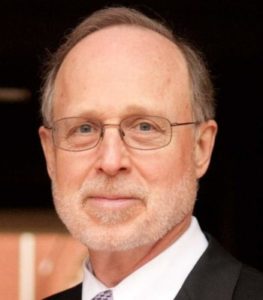In 2015, 37% of Republican voters told pollsters that “colleges have a negative effect on the United States.” By 2019, 59% of Republicans said they believed that.
Among non-white voters, educational level had no effect on political preference in the 2016 election. Within this demographic, 68% of college-educated voters supported Hillary Clinton and 77% of non-college-educated voters supported Clinton.

Alan Bean
But among white voters, a different story: College-educated white voters supported Clinton over Donald Trump by 17 points, while non-college white voters went for Trump by a stunning 36 points. A gulf of 53 points cries out for an explanation.
What’s the correlation?
It is tempting to see a correlation between high levels of education and support for Democrats. But as Michael Sandel notes in The Tyranny of Merit, it wasn’t too long ago that a majority of educated whites voted Republican while the Democratic base was solidly blue collar. Something new is afoot.
There is a second factor that correlates famously with strong support for Trump: White Christianity. As Robert P. Jones demonstrates in his searing White Too Long: The Legacy of White Supremacy in White Christianity, “The more racist attitudes a person holds, the more likely he or she is to identify as a white Christian.”
Again, this doesn’t apply to Christians per se; just white Christians.
Although Jones grew up Southern Baptist, he isn’t just talking about white evangelicals. White members of Catholic and Protestant mainline churches show far higher levels of racial resentment than you will find among non-white Christians and white non-Christians.
The advance of enlightenment?
In 2015, 37% of Republican voters told pollsters that “colleges have a negative effect on the United States.” By 2019, 59% of Republicans said they believed that.
American history has traditionally been chronicled as a steady advance of enlightened white civilization over the forces of ignorance and superstition. The mass slaughter of Native Americans and the horrors of chattel slavery either have been ignored or glossed over.
The nostalgic lyrics of Steven Foster’s Old Folks at Home, written on the verge of the Civil War, reinforced the image of happy Southern slaves:
All up and down de whole creation
Sadly I roam,
Still longing for de old plantation,
And for de old folks at home.
“The servitude of the African race, as existing in these States,” the state of Texas declared in 1861, “is mutually beneficial to both bond and free, and is abundantly authorized and justified by the experience of mankind, and the revealed will of the Almighty Creator.”
This narrative was endorsed by Columbia historian Ulrich Bonnell, whose 1918 book, American Negro Slavery, would shape how white Americans understood the scandalous institution until mid-century. “On the whole,” Bonnell wrote, “the plantations were the best schools yet invented for the mass training of that sort of inert and backward people which the bulk of American negroes represented.”
“We have too often a deliberate attempt so to change the facts of history that the story will make pleasant reading for Americans.”
As W.E.B. du Bois put the matter in 1935: “We have too often a deliberate attempt so to change the facts of history that the story will make pleasant reading for Americans.”
‘The Critique’
That verdict no longer applies. Enroll in a class in history, sociology or anthropology in your typical secular university and you will encounter a full-frontal assault on all things America. I have come to call it “The Critique.”
Let me offer a highly simplified pencil sketch of the five most prominent elements of The Critique.
- White supremacy. The focus here isn’t on men in white sheets who use the n-word. “White supremacy” refers to the assumption that white lives matter more than non-white lives. The phrase has fallen into disfavor in some circles because it is prone to misunderstanding. Why not simply speak of racism? But the fact that America’s commitment to white supremacy is invisible to most white people is precisely the point. White supremacy is invisible because it is assumed.
- There was a time when only radical feminists dared argue that American society has been shaped by men with the specific purpose of suppressing the rights and aspirations of women. This is now the dominant view within the academy.
- In elite academic circles it is now assumed that the LGBTQ community is every bit as normal, and therefore acceptable, as straight folk, and should therefore be afforded the rights and dignity traditionally reserved to the straight community. Anyone believing otherwise is displaying a crude form of bigotry born of fear and ignorance.
- It is widely assumed that free market capitalism is prized by the powerful because it produces winners and losers. American society is controlled by oligarchs who, having reaped the economic benefits of our capitalistic system, are determined to keep the goodies to themselves. The steadily widening wealth gap is a consequence of political decisions controlled by the rich and powerful for their own benefit.
- The proliferation of Western empires gobbling up realms of influence in the global South was once viewed as a process of transferring the blessings of civilization (including Christianity) to benighted realms. Empire building is now defined as a series of crude power-grabs; the domination and exploitation by one country of people over another group of people.
According to the principle of “intersectionality,” these five forms of oppression are seen as overlapping and mutually reinforcing. The climate crisis, for instance, is often attributed to a combination of economic imperialism that is closely linked to oligarchy, patriarchy and white supremacy. The immigration crisis is viewed through a lens combining white supremacy, oligarchy and imperialism.
A single individual may be seen as complicit in, or victimized by, all five forms of oppression at once.
It also has become axiomatic that white Christianity is hopelessly entangled in all five forms of oppression highlighted by The Critique. It is hardly surprising that young white people who take their moral cue from The Critique are abandoning their churches in unprecedented numbers.
“When people disparage ‘political correctness,’ they are usually recoiling from some aspect of The Critique.”
When people disparage “political correctness,” they are usually recoiling from some aspect of The Critique. And it must be admitted that “wokeness” can be wielded as a rhetorical club or reduced to smug virtue signaling.
Those most committed to The Critique exhibit the moral passion of 17th century Puritans, and they have incurred the same sort of backlash.
In undiluted form, The Critique is an instrument of revolution. The goal is utopian: The utter eradication of oppression. If you’re not part of the solution; you’re part of the problem. Even people who identify as progressive express frustration with this level of moral certitude.
The Black Lives Matter movement is grounded in The Critique. White supremacy may be the primary focus, but most of the young people on the streets are down with the entire package.
‘The Heroic Narrative’
Which created an opportunity for the Great Divider. Speaking at a White House Conference on American History in September, Trump threw the full weight of his bully pulpit behind the myth of American exceptionalism:
Our mission is to defend the legacy of America’s founding, the virtue of America’s heroes, and the nobility of the American character. We must clear away the twisted web of lies in our schools and classrooms and teach our children the magnificent truth about our country. We want our sons and daughters to know that they are the citizens of the most exceptional nation in the history of the world.
The narrative of Heroic America and The Critique define the extreme polls of American opinion. If you are younger than 40 and have a few years of higher education under your belt, you probably understand the general drift of The Critique. To some extent, it probably has influenced your moral outlook. If you are over 60 and didn’t attend college, you were almost certainly exposed to the Heroic Narrative as a child. The Critique has suddenly burst onto the scene unannounced. You feel blindsided.
“The narrative of Heroic America and The Critique define the extreme polls of American opinion.”
The Heroic Narrative of American history is rooted in the assumption that “real” Americans are white and Christian. Nobody makes these claims out loud. Not in public, anyway. But the rapturous celebration of the MAGA revolution leaves little doubt that, for millions of Americans, it is axiomatic that white Christians should hold a privileged place in American society.
People who venerate Donald Trump can be critical of his arrogance, vulgarity and penchant for, shall we say, exaggeration. But Trump celebrates the Heroic Narrative while demonizing The Critique. He’s the self-appointed defender of white Christianity. He celebrates American exceptionalism. And, like the BLM people, he won’t give an inch.
For the past quarter century, self-taught Christian historians like David Barton have been assuring white evangelicals that Christian America is the apple of God’s eye. If trained historians are anything to judge by, Barton is wrong about practically everything. But it doesn’t matter. There’s a market for this stuff. And now the president of the United States is leading the cheers for Christian America.
Which way will we go?
In 2016, only 23% of white evangelicals felt the country was “going their way”; now 63% feels that way.
But white Christian America has hitched its wagon to a falling star. White Christians shouldn’t embrace The Critique (or any other ideology) with naive zeal, but it must be taken seriously. Are we complicit in radical evil? Have we been unfaithful servants? Have we borne false witness?
If the shoe fits, we dare not acquit.
Like the first disciples, we must rebuild our religion from the ground up. 2 Corinthians 5:17 points the way forward: “If anyone is in Christ, there is a new creation: everything old has passed away; see, everything has become new!”
Alan Bean is executive director of Friends of Justice, an alliance of community members that advocates for criminal justice reform. He lives in Arlington, Texas.


